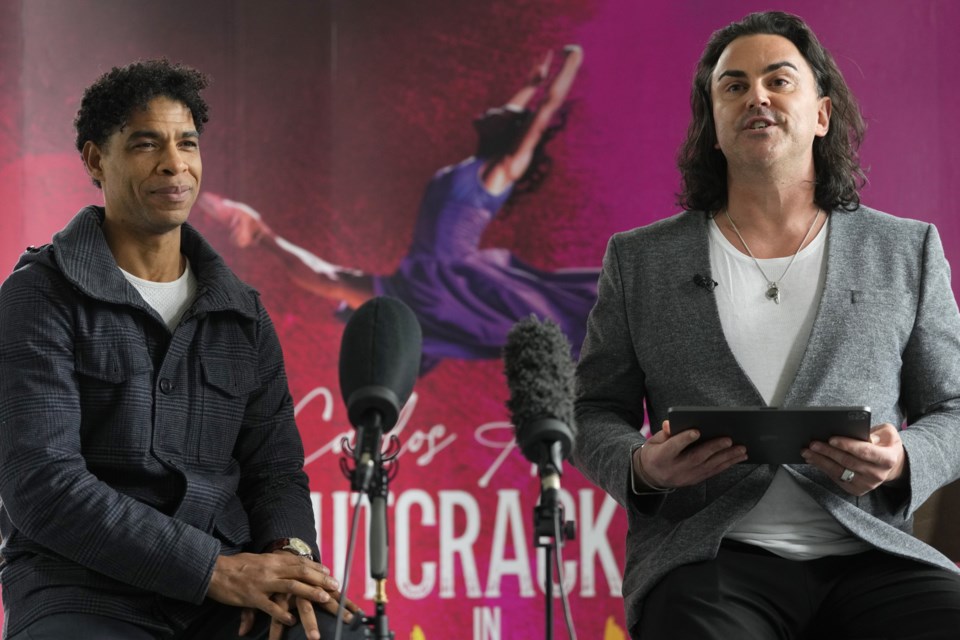LONDON (AP) — Carlos Acosta, the Cuban-born ballet star, has danced “The Nutcracker” countless times in his glittering career. Now he’s giving the ballet a twist by putting the culture and music of his homeland at the heart of the holiday classic.
Acosta is choreographing and directing his new show, “Nutcracker in Havana,” which reimagines the traditional story by setting it in Cuba and fusing classical ballet with the street dances of Havana. It will be set to a new version of Tchaikovsky’s familiar score, mixed with vibrant Latin jazz, bossa nova and Cuban folk.
“It’s the ballet I’ve most performed in my entire career … but this is going to be a Nutcracker completely different to all the rest of the Nutcrackers out there,” Acosta told The Associated Press Monday in London as he launched the new production. “It’s going to be joyful, it’s going to be happy just like Cuban people are.”
The show, which is set to tour U.K. cities from November, will be performed by some 20 dancers from Acosta Danza, the Havana-based dance company Acosta founded in 2016 after retiring from classical ballet.
It’s something of a journey back in time to Acosta's humble beginnings in Havana, where the dancer grew up as the youngest of 11 children in a deprived neighborhood. As a young boy, Acosta was into disco and break-dancing with his friends; he didn’t start ballet training until about 9 years old, but he soon advanced to the very top of the dance world against the odds.
At 18, he became the youngest principal dancer at the English National Ballet, and he later became the first Black principal at London’s prestigious Royal Ballet, where he was based for 17 years.
Stephen Crocker, chief executive of eastern England’s Norwich Theatre, where the new ballet will open, said having a Black artist recreate the classic European story is key to the project’s goal of reaching as wide and diverse an audience as possible — including those who would not otherwise have considered going to the ballet.
“A lot of versions of Nutcracker look the same, you see people who look the same in every production,” Crocker said. “This has always been part of the vision for this telling of Nutcracker – that it should speak differently.”
“It is exquisite what Carlos has done by taking the balletic choreography and fusing it so wonderfully. So for ardent, technical dance fans, there is a lot to see,” Crocker added. “But for those that might be new to dance, I'd say come and give it a go.”
Acosta is considered one of the greatest names in dance, but at 50, he mostly stays behind the scenes these days as a choreographer and director. He's focused on nurturing young students from his native Cuba and championing a more contemporary, diverse face of ballet.
“As an art form ballet has to adapt,” he said. “One of the things you can do is not being a company from the past, but a company that incorporates the past but speaks about the present and the future.”
Still, he admits missing the stage, and says he has no plans to fully retire as a dancer.
“Definitely, the stage is there in my mind,” he said with a grin. “One day it’s going to be the end, but we’re not there yet. I’m trying to postpone that day as much as I can.”
Sylvia Hui, The Associated Press



